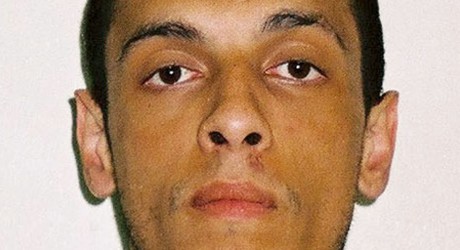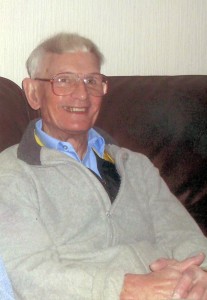
Serial offender Cory Youlden pleaded guilty to the murder of defenceless 83 year-old pensioner Paul Cox in a “savage” attack after breaking into his home while out of prison on licence has been jailed for life. Mr Cox who had been burgled so many times he had taken to sleeping in his front room with his most valuable belongings.
 The 23-year-old was jailed by judge Robert Juckes at Worcester Crown Court on the 27th February 2012 after being shopped to his girlfriend’s policeman brother.
The 23-year-old was jailed by judge Robert Juckes at Worcester Crown Court on the 27th February 2012 after being shopped to his girlfriend’s policeman brother.The court heard that the officer had been tipped off after Youlden’s partner, Claire Woodward, heard about the murder and informed her mother of her suspicions.
He had initially claimed he had been with two other men, one of whom Youlden claimed had killed Mr Cox, when he broke into the house in Rednal, Worcestershire, in June 2011
Alex Warren, prosecuting, told the court Youlden had only been freed on licence after a previous spell in prison for burglary in February 2011.
“He was staying with his girlfriend Claire Woodward,” he said. “She told police they had had a row the previous night at her home in Frankly.
“He entered Mr Cox’s house by breaking a panel in a bay window at the front of his house.
“Having been burgled several times before Mr Cox had taken to sleeping in a chair in his living room with his most important possessions on his body.”
According to Mr Warren, Youlden searched the whole house and at some point came across Mr Cox.
Post mortem reports showed that he had been killed by heart failure but he also had injuries to his neck, which suggested he had been strangled.
“He had received injuries to his neck that were in line with being placed in an headlock,” added Mr Warren.
“The defendant returned to Miss Woodward’s home at 7.30 the next morning seemingly very hyper and told her he was in possession of a Ford Focus.
“He told her he had been given it by a man who asked him to take it to somewhere else.
“He went to the car and brought in bags of shopping containing food and alcohol, which had both belonged to Mr Cox.
“Eventually he admitted the car was stolen and she told him to get rid of it.
“It was eventually sold to two men, and found later burning in Erdington, Birmingham.
“Youlden was arrested after Miss Woodward heard about Mr Cox’s death on the news and told her mother what had happened.
“Her mother told her brother, a police officer, and Youlden was arrested on June 5.
“Initially in interview he claimed he was with two other men, one of whom had killed Mr Cox.
“This led to the arrest of two other men, it was when he was told this he changed his story to the one he has used since.”
Youlden, who wore a red and blue rugby top, sat emotionless in the dock as he was sentenced to a minimum of 22 years in jail.
Sentencing him to life imprisonment Judge Robert Juckes described the murder as “savage”.
“Paul Cox was a disabled man, having lost most of his sight and hearing,” he said.
“But he was fiercely independent, and his neighbours did their best to look after him.
“You would have seen the house was dilapidated and an easy target.
“I accept that you drank wine and smoked a cigarette before killing Mr Cox.
“You saw a light in another room and instead of doing what most would and leaving you went to confront Mr Cox.
“You got behind him somehow and put your arm round his neck. Rather than helping him you left, he would have died in your arms and you moved him to the chair where he was found.
“I stress this is a minimum term I set and the life sentence for murder will mean you will spend the rest of your life either in prison or under severe supervision.”
Youlden has previous convictions for burglary, battery, robbery and theft dating back to 2002, when he was 14.
According to Stephen Linehan, defending, Youlden had lived a “wretched” home life.
“He was fostered when he was just 11 months,” said Mr Linehan. “After that he was adopted when he was 8 or 9 by the woman who he still calls his mother.
“But when he was thirteen she got a new partner who abused her and when he tried to defend her he was kicked out of the house for good and into care.
“When he stole the car he was on his way back to his licence hostel and decided, as was his way, to steal a car rather than walk several miles.”
A statement from Mr Cox’s family, read out by DC Amjad Iqbal of West Mercia Police described the murdered pensioner, who died just days before his 84th birthday, as “kind and loyal”.
“Despite being 83 Paul Cox was still able to love life,” he said.
“He still drove his car, saw his family regularly and was able to go for a pint.
“There is no reason to think he could not still be doing so were it not for his brutal and senseless murder.”
Detective Chief Inspector Paul Williamson, of West Mercia Police, said Mr Cox was fiercely independent and enjoyed watching cricket and other sport on television.
He said: “He had been sleeping down there due to previous burglaries at the house and he was in fear of people doing it again so he spent a lot of time in his downstairs in his rear living room.
“It was a brutal killing of an elderly man by a man who is 60 years his junior, and Mr Cox was absolutely no match for this burglar who had come into his house.”
Youlden was also sentenced to five years for burglary and five years for theft to run concurrently with his sentence.






